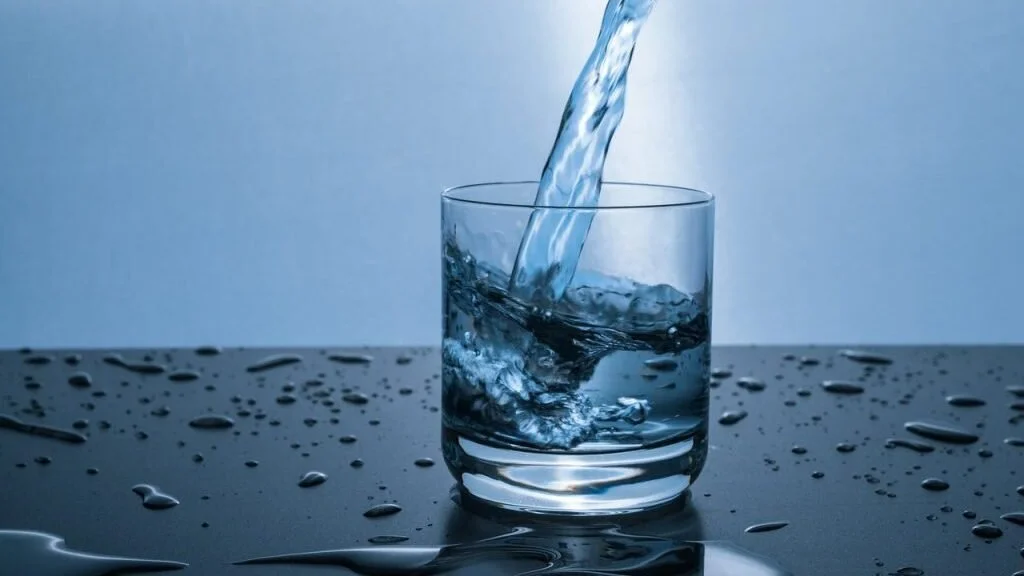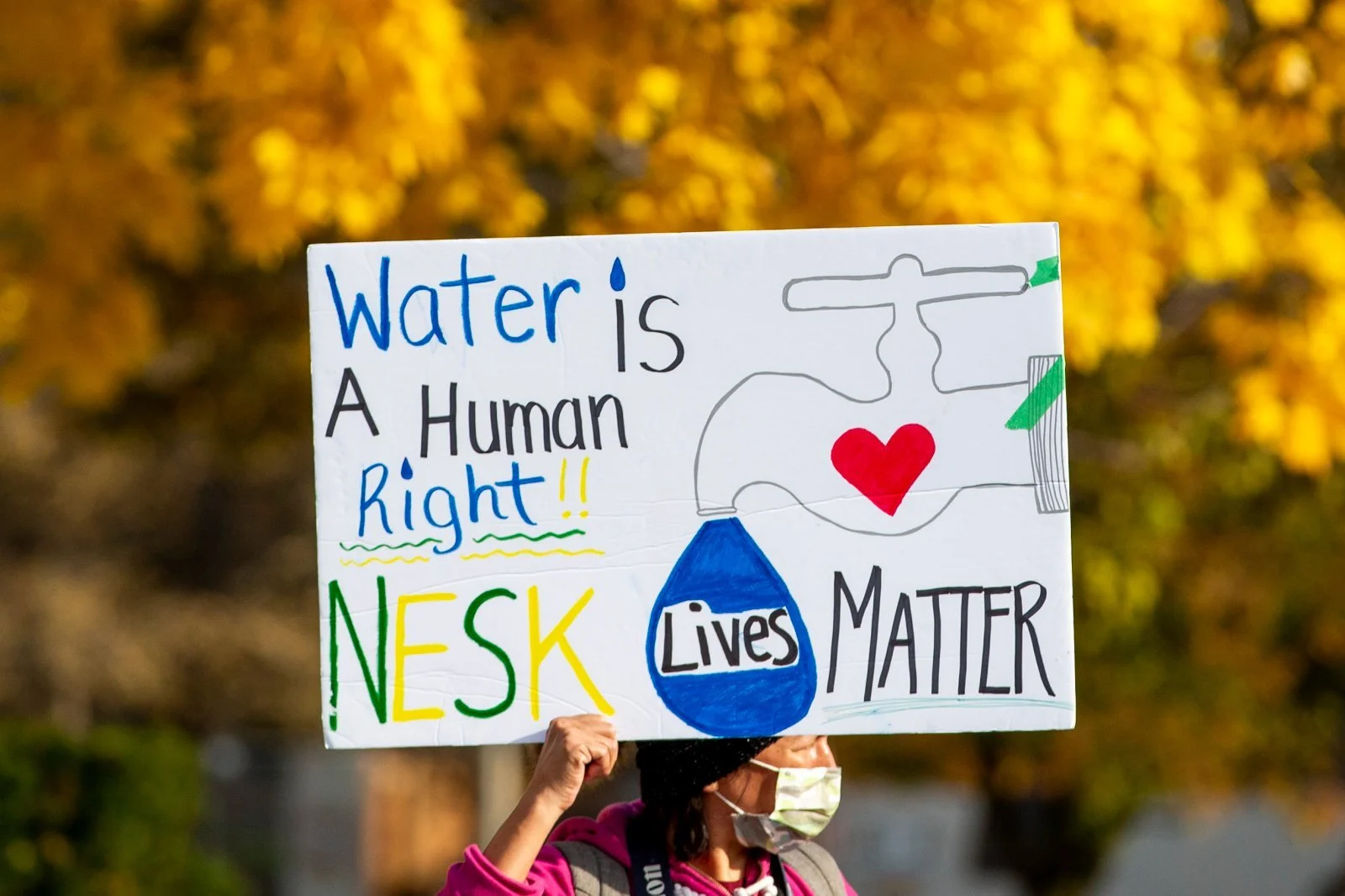After more than two decades without clean drinking water, Shoal Lake 40 First Nation on the Ontario-Manitoba border is celebrating the opening of a water treatment facility and the end of water advisories for the community. Despite drawing water from the same source as the City of Winnipeg, Shoal Lake 40 has never had a centralized water treatment facility. Construction of the new $33-million water treatment facility and system started in 2019.
Alumna-led venture amplifies voices of Indigenous water treatment operators
When Bita Malekian, BSc (Eng)’18, MEng’21, received her bachelor’s degree from the Schulich School of Engineering, she was inspired by the call to action to, as she says, “use the skills and knowledge I learned to give back to my community.” Since then, Malekian has launched Water Movement (WM), a venture supported by the Calgary Professional Chapter of Engineers Without Borders. The initiative provides a formal platform for Indigenous water treatment operators across Canada to connect, ask questions and access a video library that features tutorials on a wide variety of topics, from managing treatment plants to tips on testing chlorine residue in water.
Canada’s Indigenous Services minister helps celebrate clean drinking water at SFN
Federal Indigenous Services minister Marc Miller visited the Semiahmoo First Nation Wednesday (July 28) to help celebrate the nation’s removal from a boil water advisory in place since 2005. But it was also an opportunity to acknowledge, after discussion with SFN councillors, that much work still has to be done, he said. Miller told Peace Arch News that the federal government must continue to play a role in SFN infrastructure projects that may take as much as a decade to achieve.
Government of Canada and Asubpeeschoseewagong Netum Anishinabek (Grassy Narrows First Nation) sign revised Framework Agreement for Mercury Care Home
Today, the Honourable Marc Miller, Minister of Indigenous Services, Chief Randy Fobister and elected council of Asubpeeschoseewagong Netum Anishinabek (ANA) met in community to sign an amendment to the Mercury Care Home Framework Agreement, which builds on the Government of Canada's commitment to ensuring that ANA residents who are living with methylmercury poisoning receive the care they need while staying closer to home, community and family.
Indigenous communities should dictate how $1 billion infrastructure investment is spent
We finally have a chance to get it right. For the first time in history, Canada has launched a $1 billion investment dedicated to First Nations, Métis and Inuit infrastructure. The Canada Infrastructure Bank (CIB) is establishing the Indigenous Community Infrastructure Initiative (ICII), which will enable the building of new infrastructure projects in Indigenous communities and help generate investments in projects that are vital to economic growth and environmental protection. For decades, the promise of investments and dedicated funding have fallen flat. Limited to what the federal government can fund within their restrictive policies and confined by an infrastructure funding process that is flawed, sluggish and heavy regulated. Resulting in lackluster infrastructure projects that limit Indigenous autonomy and self-determination.
Feds didn't supply enough resources to end water advisories on First Nations: auditor
“We are very concerned, and honestly, disheartened that this long-standing issue is still not resolved,” Horgan told a news conference in Ottawa. Indigenous Services Canada won’t meet its commitment to eliminate all long-term drinking water advisories by the end of March, something the government admitted late last fall. Hogan also noted the government has not created a regulatory regime for managing drinking water in First Nations communities. “Access to safe drinking water is a basic human necessity,” she said. “I don’t believe anyone would say that this is in any way an acceptable situation in Canada in 2021.”
Government Not Meeting Safe Drinking Water Standards
A scathing report has been released by Canada’s Auditor General concerning on-going boil water advisories in First Nations communities. Karen Hogan says the support provided by Indigenous Services Canada has not been adequate to address long-standing problems with safe drinking water for many. Hogan says drinking water notices remain a part of daily life in many aboriginal communities, with almost half of existing long-term advisories in place for more than a decade.
Auditor General urges Feds to resolve clean drinking water issues
The Federal Auditor General is speaking out, expressing her disappointment over the unresolved issues of access to clean drinking water on First Nations reserves. “I am very concerned and honestly disheartened that this long standing issue is still not resolved,” said Auditor General Karen Hogan. “Drinking water advisory’s have remained a constant in many communities with almost half outstanding for more than 10 years.”
First Nations workers in Sask. sacrifice wages, vacation to run underfunded water systems
Rebecca Zagozewski is the executive director of the Saskatchewan First Nations Water Association, a non-profit organization that works to build First Nations’ capacity to take care and control of their own water services. She says recruitment and retention of water treatment plant operators is a “real problem” on Saskatchewan First Nations, largely because they often can’t pay operators competitive wages.
How colonial systems have left some First Nations without drinking water
Rebecca Zagozewski, executive director of the Saskatchewan First Nations Water Association, said she has seen contractors save on costs when building water treatment plants on reserves by using obsolete parts and failing to include maintenance manuals, ventilation or chemical rooms, and bathrooms. “Engineering companies will put in their bids obviously as low as they can go,” said Zagozewski.
'We matter like all other Canadians': Tataskweyak Cree Nation calls on Ottawa to restore clean drinking water
Tataskweyak Cree Nation (TCN) is one of more than 55 First Nation communities in Canada under a long-term boil water advisory and has been for the last four years. On Thursday, the First Nation’s Chief and NDP MP Niki Ashton called on Ottawa to restore clean drinking water. TCN has said the Canadian government has failed to deliver on the promise of clean drinking water for their community. “We can no longer ignore it anymore. We have to fight for our people," said TCN Chief Doreen Spence. "We matter like all other Canadians." Spence said they are left with no choice but to bring the issue – a basic human right – to the United Nations.
Boil water advisory lifted on Black Lake Denesuline First Nation after more than 7 years
A boil water advisory on the Black Lake Denesuline First Nation that has been in place for more than seven years has been lifted, according to the Government of Canada. The long-term drinking water advisory (LT-DWA) was lifted on January 23. Nearly 200 homes and buildings in the northern First Nation such as the school, fire hall and band office now have clean drinking water from the local water treatment plant.
Neskantaga First Nation Still Doesn’t Have Clean Water
This past November marked 25 years since Neskantaga First Nation, located in Northwestern Ontario, was placed on a boil water advisory. In October 2020, over 250 Neskantaga residents were evacuated and transferred to a hotel in Thunder Bay after “an oily sheen was found in the Neskantaga water reservoir;” “high levels of hydrocarbons” were discovered in the water after testing. Residents were able to return after two months, but the boil water advisory remains. Chief Chris Moonias has called upon Ontario Premier Doug Ford to support Neskantaga First Nation in securing clean drinking water and properly trained water operators – Ford has yet to respond. Ending all boil-water advisories in Canada can no longer be delayed; Ford must act in accordance with the concerns of the Neskantaga First Nation immediately.
Clean water for First Nations critical during the COVID-19 pandemic: Activists
Activists in northeastern Ontario fighting for safe, clean water in First Nations communities across Canada are getting tired of broken promises. After five years and millions in spending, the Liberal government announced in early December that it would not fulfill its commitment to end all long-term water advisories on reserves by March 2021. Although some progress has been made – 97 advisories have been lifted since November 2015 – there’s still a long way to go. There are 59 active long-term water advisories in 41 communities across the country, and activists maintain that clean water should be a priority for the federal government, especially during a global pandemic. “Water is a basic human right, and nobody should have to beg for it. This is wrong, and it’s come to the point where I think it comes down to racism,” said Autumn Peltier, a teenage water-rights activist from Wiikwemkoong Unceded Territory on Manitoulin Island.
First Nations communities pursue clean drinking water through the courts
This time of year, with the temperature plunging below -20 C, a snowmobile and an ice chisel are required tools for anyone in Tataskweyak Cree Nation in need of fresh water. There’s the bottled stuff, trucked into town courtesy of the federal government, but the weekly shipment of 1,500 cases is only sufficient to meet basic consumption needs. For cleaning, cooking and basic hygiene water, many residents need a supplementary source. And rather than use their tainted tap water, they follow a snowmobile trail several kilometres to Assean Lake, pails in hand.
NP View: That many First Nations still don’t have access to potable water is a stain on our national character
It is to our national shame that many First Nations communities still don’t have access to potable water. That we have known about the problem for decades and failed to address it is a stain on our national character — one that Justin Trudeau and his Liberals made a lot of hay about addressing during the 2015 election campaign. “A Canadian government led by me will address this as a top priority because it’s not right in a country like Canada. This has gone on for far too long,” Trudeau said at the time, pledging to end all boil-water advisories on reserves within five years.
‘They’re really struggling’: Inside the Neskantaga First Nation water crisis
When Chris Moonias woke up thirsty at 4 a.m. in his room at the Victoria Inn on a recent fall day, the first thing he did was look for a bottle of water. Though tap water was available in the bathroom, the Neskantaga First Nation chief grabbed his key, left his room, and walked to a nearby boardroom to find a bottle. He couldn’t bring himself to use the tap. His community has been under a 25-year boil-water advisory, Canada’s longest, and a distrust of running water, he says, has become pervasive among its members: “That’s the continued trauma. I'm not the only one that goes through this. If you go room to room here at the hotel, I guarantee you 100 per cent of those rooms have cases of bottled water.”
Bee Moonias on life without clean drinking water
When you live your whole life without tap water that’s safe to drink, it can start to feel like you’re invisible. That’s how nine-year-old Bedahbun Moonias from Neskantaga First Nation in northern Ontario put it. “Sometimes, I feel like we don't exist,” she said. “Like we're just ghosts and we're just put in a drawer, in a box. We’re suffering in that box with no clean water.” Bedahbun, who goes by the name Bee, lives in a community with a boil water advisory, which means her tap water has to be boiled before it’s safe to drink.
Indigenous Services minister to acknowledge Liberals won't meet promised drinking water target
The Trudeau government has helped lift 97 long-term drinking water advisories in First Nations since 2015, according to Indigenous Services Canada. Currently, 59 advisories are still in place in 41 communities. Since forming government, the Liberals have spent more than $1.65 billion of the $2.19 billion they set aside to build and repair water and wastewater infrastructure, and to manage and maintain existing systems on reserves. The $1.5 billion proposed in Monday's fiscal update is in addition to that $2.19 billion.





















